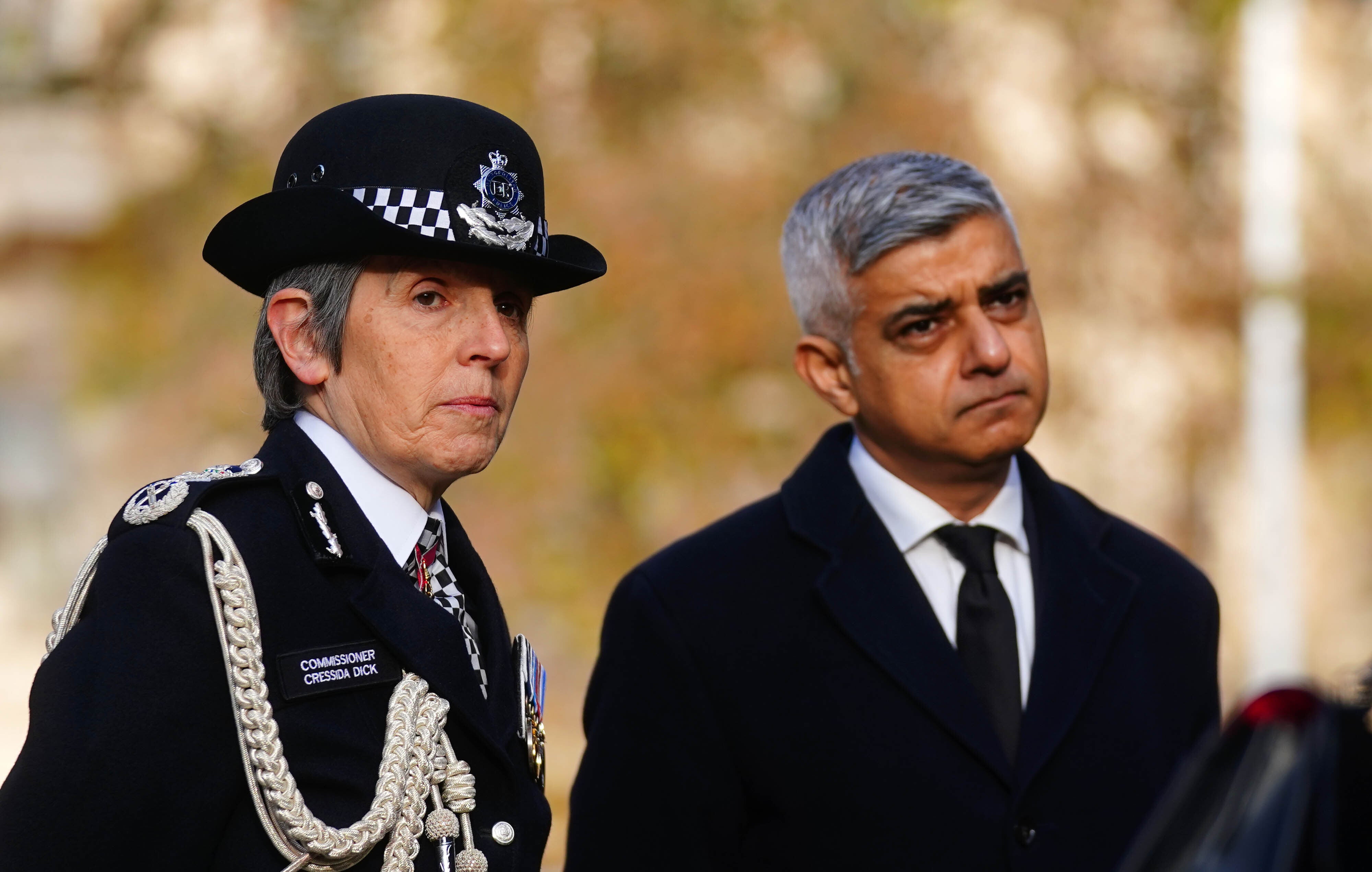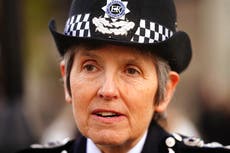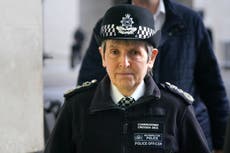Cold, complacent, complicit – why Cressida Dick had to go
It was a ‘shock’ resignation – except that it wasn’t


Your support helps us to tell the story
From reproductive rights to climate change to Big Tech, The Independent is on the ground when the story is developing. Whether it's investigating the financials of Elon Musk's pro-Trump PAC or producing our latest documentary, 'The A Word', which shines a light on the American women fighting for reproductive rights, we know how important it is to parse out the facts from the messaging.
At such a critical moment in US history, we need reporters on the ground. Your donation allows us to keep sending journalists to speak to both sides of the story.
The Independent is trusted by Americans across the entire political spectrum. And unlike many other quality news outlets, we choose not to lock Americans out of our reporting and analysis with paywalls. We believe quality journalism should be available to everyone, paid for by those who can afford it.
Your support makes all the difference.Well, there’s a screeching U-turn for you, as dramatic as anything performed by the Sweeney trying to catch a gang fleeing a shed up at Heathrow. “I have no intention of going,” says Met commissioner Cressida Dick to BBC London in the morning. An “invitation” to meet Sadiq Khan, the mayor of London, in the afternoon, a cup of coffee during which Khan would thank her for her service but solemnly inform her she no longer had his confidence. Invitation declined. Presumably Khan’s lack of confidence was shared by the home secretary, Priti Patel, or at least she didn’t try to stand in Khan’s way. So Cressida took it on herself to avoid the final traumatic and pointless meeting with Khan and jumped before she was pushed. Hence the resignation. As she put it, he left her no choice but to step aside. Defiance to humiliation in the span of a copper’s shift.
It was a “shock” resignation – except that it wasn’t. There are plenty of conspiracy theories that can be cooked up, but there may be less to the fall of the commissioner than meets the eye. There are, for sure, plenty of unsolved mysteries that she leaves behind. But her record was chequered, to say the least. The shock was more that Commissioner Dick lasted as long as she did.
At the most basic level, she failed to tackle crime in the capital to the satisfaction of the politicians and the long-suffering citizens of the metropolis, fed up with gangs and knife crime. She had to take responsibility for the apparently endemic racist, homophonic and misogynistic culture at Charing Cross police station and, quite possibly, more widely in the Metropolitan Police Service. That is also suggested by the appalling discovery that two officers supposedly in charge of a murder scene made degrading and sexist remarks about two murdered sisters, also photographed and shared on Whatsapp groups. The Sarah Everard murder and its aftermath was poorly handled, with little sensitivity, and made all the worse because she was raped and killed by a serving officer. As the court case showed, there were many alarming indicators known to fellow officers about the true nature of Wayne Couzens.
In the end, Dick ran out of friends. Khan wanted her out; so did some in the government; so did some Londoners – even if many of her fellow officers still supported and respected her. She was probably too defensive of the police force, understandably for a career officer. Clever and “political”, she was also defensive and a touch too arrogant, patronising critics such as Reclaim the Streets. On the right, and more generally, she was derided for the way she enforced lockdown laws during the Sarah Everard vigil; and also for the way the police dealt with Black Lives Matter protests. On the left, and again to be fair more generally, Dick was also blamed for the sexism and racism that has persisted in the ranks. She seemed ignorant of homophobia during and after the Stephen Port case. Dick’s principal personal failing, as opposed to the institutional tendency to go into denial, was simply that she seemed a cold fish.
To keep up to speed with all the latest opinions and comment, sign up to our free weekly Voices Dispatches newsletter by clicking here
There is also, inevitably, controversy about the way the police handled the Partygate allegations. The Met loftily and infamously stated, with again too little empathy, that they didn’t bother with cases from a year ago. By the time Dick caught up with reality, it was too late. The conspiracists were out there, and the damage to the reputation of the independence of the police was done.
Almost a quarter-century after the Macpherson Inquiry into the death of Stephen Lawrence, many believe that the Met is still “institutionally racist”. Dick disagreed, disliked the term and ended up looking complacent, even hostile when toxic material and behaviour was uncovered. Ironically for such a senior gay figure in public life, Dick had something of a tin ear towards minorities.
Like all institutions when they run into trouble, the Met closed ranks, denied wrongs and defended the indefensible. It’s just the same with scandals in banks, companies, churches, political parties, the BBC, the press and many others – the tendency is to protect their own, preserve reputations and limit the damage. That was how Dick saw her job, and it was not sustainable.
There are, though, intriguing questions. How did Dick come to be reappointed last year when the rumours were she was about to be sacked? What exactly did pass between her and Sue Gray and others in central government about Partygate? What, if anything, did she do in the aftermath of Couzens and other scandals? What part did Boris Johnson play in her survival and then her dismissal? And of finding her replacement? The truth about these things must come out now.
Soon the Met will have fresh leadership. There are good Bame candidates that might reassure Londoners a little, such as Neil Basu, and Michael Fuller, formerly of the Kent force. The next commissioner will take the service towards its centenary celebrations in 2029. He, or she, has as big a job to do as any of their predecessors.



Join our commenting forum
Join thought-provoking conversations, follow other Independent readers and see their replies
Comments